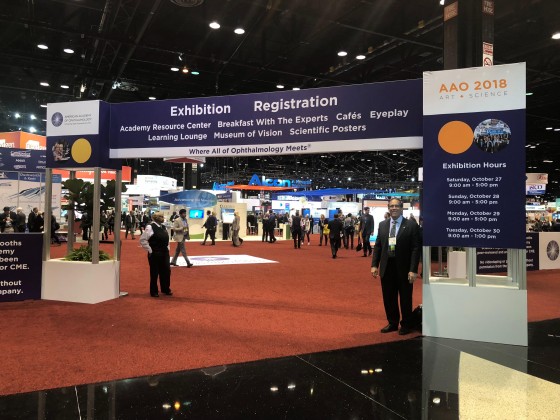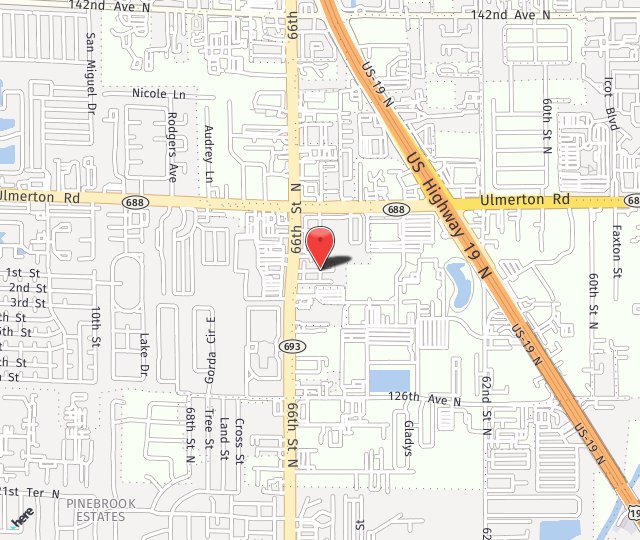We provide comprehensive eye care to patients above the age of 18. Our doctors are fully trained and experienced to diagnose, treat and prevent conditions from myopia and hyperopia to glaucoma, cataracts and everything in between.
We strive to provide our patients with safe, minimally invasive treatments to effectively relieve symptoms and preserve vision and overall eye health. As a comprehensive ophthalmology practice, our services include not only examinations for laser vision correction and small-incision cataract surgery but also treatments for a range of conditions such as glaucoma, the diabetic eye, dry eye and macular degeneration.
Dr. Shettle at the American Academy of Ophthalmology

Regular Eye Exams
Regular eye exams are an invaluable tool in maintaining your eyes' health by detecting and preventing disease. Some diseases develop slowly without causing pain or vision loss. Early detection of any problems can reduce the risk of further harm and allow for a choice of treatment options. We regularly screen for diseases such as glaucoma and diabetic retinopathy, which can develop without any noticeable symptoms.
Patients should see their doctor for a comprehensive eye exam every one to three years, depending on their age, risk of disease and overall physical condition. Older adults are often at a higher risk for eye conditions such as glaucoma, macular degeneration and cataracts. Even if your eyes are healthy, you should still have a regular eye exam to detect any problems as soon as possible and begin necessary treatment.
Common Eye Conditions
Within our comprehensive practice, we treat vision conditions such as myopia (nearsightedness), hyperopia (farsightedness) and astigmatism through visual aids and surgical procedures if desired, as well as conditions affecting the cornea, iris, lens, vitreous, retina, eyelid and surrounding areas. Some of the most common eye conditions include:
- Cataracts
- Glaucoma
- Diabetic Retinopathy
- Macular Degeneration and Dystrophies
- Dry Eyes
- Blepharitis
- Flashing Lights and Floaters
- Conjunctivitis (Pink Eye)
- Ocular Trauma
My eyes don't hurt and my vision is clear. Why should I have an eye exam?
Regular eye exams are an invaluable tool in maintaining your eyes' health by detecting and preventing disease. Some diseases, such as glaucoma, develop gradually without causing pain or vision loss - so you may not notice anything wrong until significant and irreversible damage has been done. Early detection of any problems can allow for a choice of treatment options or prevent further harm.
What is glaucoma? Am I at risk?
Glaucoma is one of the leading causes of blindness in the United States. It occurs when the pressure inside the eye rises high enough to damage the optic nerve. Symptoms include blurred vision, loss of peripheral vision, halo effects around lights and painful or reddened eyes. Testing by an ophthalmologist or optometrist can detect glaucoma before symptoms appear and begin treatment to prevent vision loss.
People at greatest risk for developing glaucoma include those who are over 40, diabetic, near-sighted, African-American, or who have a family history of glaucoma.
What are the symptoms of macular degeneration?
Macular degeneration occurs when the center of the retina degrades, causing a progressive loss of vision. Symptoms include:
- A gradual loss of ability to see objects clearly
- A gradual loss of color vision
- Distorted vision
- A dark or empty area appearing in the center of vision
There are two kinds of macular degeneration: "wet" and "dry." The "wet" form can be treated in its early stages. Regular eye exams are highly recommended to detect macular degeneration early and prevent permanent vision loss.
What is dry eye syndrome and how is it treated?
Dry eye syndrome is one of the most common causes of ocular complaints patients present with everyday. The tears which our body naturally produces are very important to maintaining good ocular health and vision. When either the quality or quantity of our tears is not sufficient, we will have complaints of our eyes feeling tired, irritated, burning, stinging, itching and looking red.
The main treatment for this condition is with over the counter artificial tears which briefly supply a lubricating tear to the surface of the cornea. There are also several over the counter lubricating eye ointments available for you to use at bedtime because the ointment will blur your vision. More severe cases of dry eyes may require punctal occlusion, which is an in-office procedure that involves blocking the puncta and allowing natural tears to remain on the surface of the eye.

